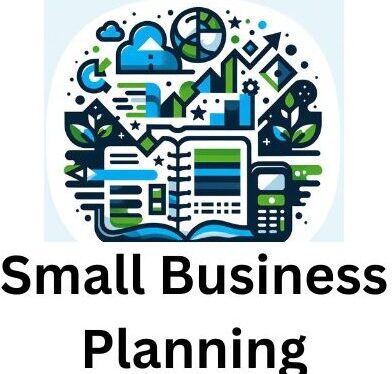
Most folks kick off a startup with ambitions bigger than a giant rubber band ball, but it’s those sneaky financial hurdles that can trip you up if you’re not careful. A small startup usually wears the badge of a business with limited funds—think tight budgets, big dreams. And this is exactly why getting down and nerdy with budgeting could be the smartest thing you do.
The cash flow river runs a little different for a startup. It’s not about what’s coming in but what’s flowing through. You need to keep a hawk-eye on every dollar swooping in and out, or you’ll find yourself in the awkward position of scrambling last minute to cover costs.
Startup leaders can’t shy away from financial literacy. It’s like being a captain who doesn’t know their own ship. Being up on terms like ‘assets’, ‘liabilities’, and how balance sheets work, isn’t just nerdy—it’s essential. It puts you in charge of the financial wheel instead of just winging things day by day.
Navigating through financial ups and downs can feel like being on a turbulent flight without a seat belt. Instead of braving the storm without a plan, why not prepare by coming to grips with common challenges? From surprise expenses to budget overruns, knowing the terrain means fewer nasty surprises.
Effective Budgeting Strategies for Resource Management
Crafting a budget isn’t just for the corporate giants; even your small startup’s to have to have its own budget style. Choose between static, rolling, or zero-based budgets. Static is the no-nonsense approach, while rolling adjusts as you go, and zero-based? That’s starting fresh every time, for the bold and daring.
Cut to the chase and prioritize spending. What’s vital and what’s not? Treat your expenses like a survival kit, ditch the unnecessary and keep what’s crucial for staying afloat. If it isn’t keeping the lights on or propelling growth, reconsider its place in your budget.
Tech is your budgeting buddy here. Load up on digital tools and apps that turn confusing numbers into clear visuals, giving you the helicopter view of your finances. There’s no need to manually crunch numbers when you can automate and save yourself the headache.
There are two products on the market that make the process easier. One product is called QuickBooks. It is a good basic product. I have successfully implemented this system in several clients. For more information about QuickBooks please click on the link. The other product that is more sophisticated is called LivePlan. For more information about LivePlan please click the link. You will find that this product offers more than QuickBooks. Both products are cost effective, have great support and will do an excellent job for a startup.
Ever heard of startups that made the most of meager resources? Study their game plans. These success stories will inspire you to think lean, work smart, and maybe even embrace a little frugality in the pursuit of startup glory.
Leveraging Financial Expertise on a Budget
Hiring a full-time financial guru might sound like a fantasy when you’re swimming in startup costs, but there are savvy ways to bring in expertise without emptying the wallet. You don’t always need someone in-house; sometimes a consultant can offer the insights you need, minus the full-time salary commitment. When I had the consulting business my engagements usually involved working with the client one day a week.
Don’t underestimate the power of a good negotiation when it comes to external financial services. Be upfront about budgets and explore packages that match what you can realistically afford. Providers often appreciate the honesty and may offer tailored solutions.
Gaining insight doesn’t mean going back to college. The internet is a treasure trove of online courses, workshops, and resources catering to entrepreneurs hungry for knowledge. Whether it’s forecasting or tax tips, there’s probably a webinar that covers it.
Cloud-based accounting tools can also transform the way you handle finances without needing an expert at your side 24/7. These platforms often come with support and are designed to be user-friendly, helping you manage accounts like a seasoned pro.
Monitoring and Adjusting Your Budget for Growth
Keeping your startup’s budget on a steady course is like sailing; even when you set your direction, the waters can shift. Regular reviews are essential. Check your numbers, tweak the plan, and stay agile. Adapting to change is how you stay afloat and steer towards success.
Key Performance Indicators, or KPIs, aren’t just for spreadsheets. They’re your map and compass. Keep tabs on critical metrics like customer acquisition cost, net revenue, and burn rate. These figures guide your decisions and highlight where you might need to adjust the sails.
Economic shifts or unexpected market changes can throw your budget for a loop. Preparing for these rocky times means building a buffer in your finances, setting aside a safety net to cushion any falls.
As your startup blossoms, your budget’s got to grow, too. Designing a scalable budget means you’re ready for expansion without tripping over your own success. Setting up a scalable system isn’t about predicting the future, it’s about leaving room to grow with the opportunities that come your way.
Here’s a little transparency: Our website contains affiliate links. This means if you click and make a purchase, we may receive a small commission. Don’t worry, there’s no extra cost to you. It’s a simple way you can support our mission to bring you quality “Business Planning content.”

I will have to say, this article really nails the essentials of managing cash flow for small startups. It breaks down different budgeting methods—from static to zero-based—and emphasizes the importance of knowing your numbers and tracking KPIs to stay agile. I especially appreciate the practical tips on using digital tools like QuickBooks and LivePlan to streamline finances without breaking the bank. It makes me wonder, what budgeting tool has made the biggest difference in your startup’s growth?
Thanks for the comment. QuickBooks made the biggest. I found it was easy to use and provided me with everything I needed.
This article provides a compelling and practical guide to budgeting for small startups. The comparison of static, rolling, and zero-based budgeting methods offers valuable insights into choosing the right approach for a business’s unique needs. I found the emphasis on prioritizing essential expenses particularly relevant, as it highlights the importance of focusing resources on critical areas that drive growth.
You also mention leveraging technology and digital tools to streamline budgeting processes. Could you recommend specific budgeting tools or software that are particularly user-friendly for entrepreneurs who may not have a strong financial background? Additionally, in your experience, how frequently should startups review and adjust their budgets to effectively respond to financial fluctuations and ensure long-term stability?
Thanks for the comment.
One of the best packages that I have found is a product called Liveplan. It offers a free trial and it is scalable which fits with a startup. You can get additional information by going to the website Liveplan.com. Best of luck